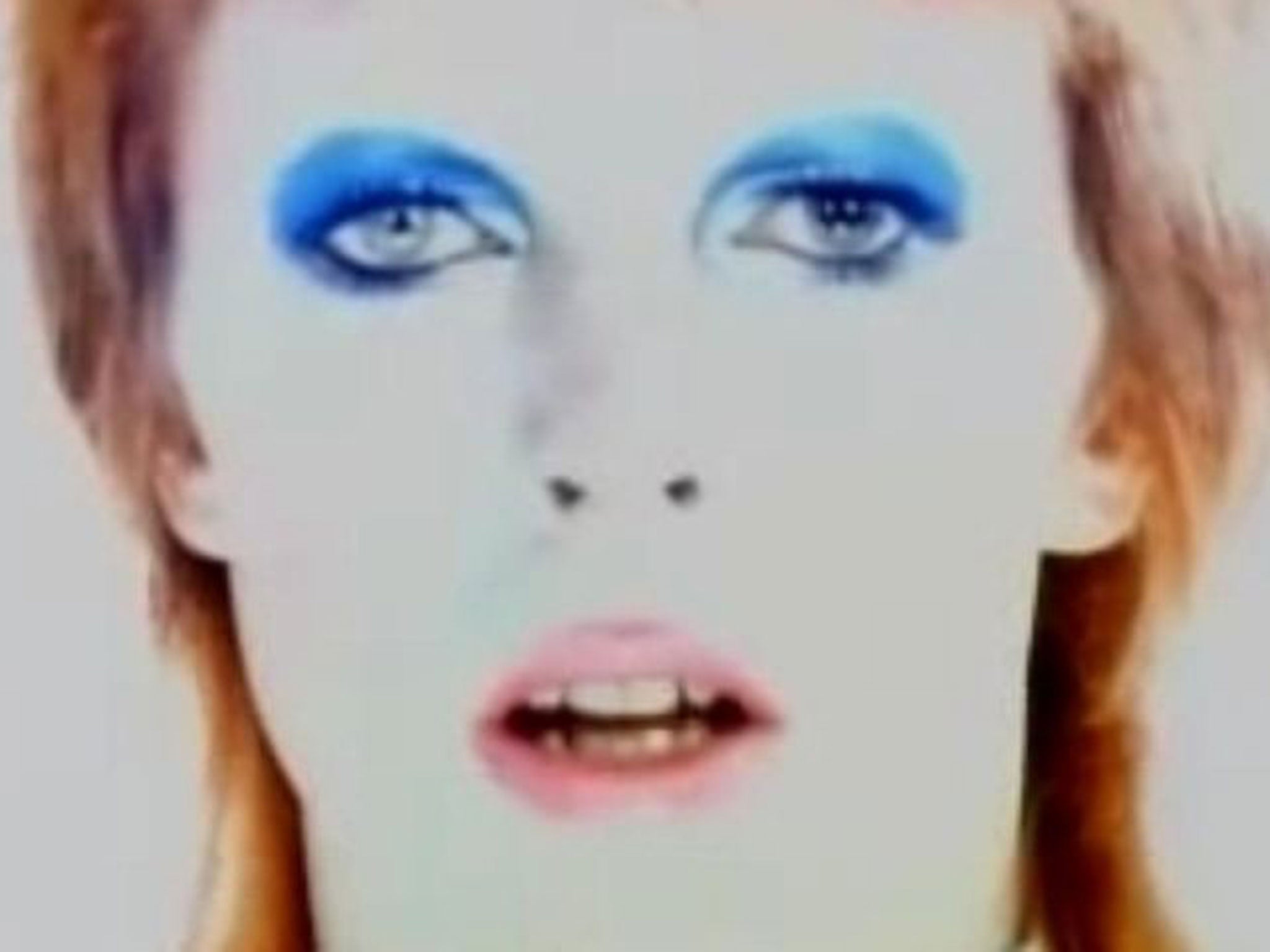David Bowie: 'Life on Mars?' hit like an asteroid emanating from a different universe
The track was released on 'Hunky Dory', and became a hit 18 months after the release of its mother album

Your support helps us to tell the story
From reproductive rights to climate change to Big Tech, The Independent is on the ground when the story is developing. Whether it's investigating the financials of Elon Musk's pro-Trump PAC or producing our latest documentary, 'The A Word', which shines a light on the American women fighting for reproductive rights, we know how important it is to parse out the facts from the messaging.
At such a critical moment in US history, we need reporters on the ground. Your donation allows us to keep sending journalists to speak to both sides of the story.
The Independent is trusted by Americans across the entire political spectrum. And unlike many other quality news outlets, we choose not to lock Americans out of our reporting and analysis with paywalls. We believe quality journalism should be available to everyone, paid for by those who can afford it.
Your support makes all the difference.What if artlessness were death? What if life were experienced most truly – or least mendaciously – in the artful? What if the identity you ascribe to yourself feels more real than the one with which you are already endowed? What if there is life on Mars?
“Life on Mars?” was released in 1971 on the Hunky Dory album, and became a hit only 18 months after the release of its mother album.
To a rural boy of 13, listening to his bedroom transistor for signs of extra-rural life, it hit like an asteroid. It seemed to emanate from a different universe, a cosmic fold in which strangeness was a comfort, surfaces were soft, girls had mousey hair on their heads, while cavemen… well, look at them go about their business.
The song has, on occasion, made me cry. It has done this when it has taken me unawares by creeping out of a radio speaker like a tiny alien invasion, as it always did when I was young. I have always found it histrionically tender, shrill and over-coloured. The tears come even now, I presume, because my nervous system is still wired to welcome that invasion.
It is acknowledged fact that “Life on Mars?” gets its basic harmonic structure from the original French inspiration to Frank Sinatra’s “My Way”, written in 1968. Rick Wakeman’s cultivated piano is as important to the atmosphere of the piece as the towering orchestral arrangement by the Spiders’ guitarist Mick Ronson.
But the song has survived like a perfect building because of the elements of its construction: the rock-solid relationship between vaulting melody and stepped bassline – and the trail left by Bowie’s streaking voice. It’s an English voice, no question. It is pinched thin and careful to begin with, softened with open vowels and even the odd moment of involuntary gentility – I always think Bowie utters the line about the “seat with the clearest view” like an elderly customer asking for a table in a Yorkshire tea room. How odd, then, that at that very moment, a mere 27 seconds in, also comes the first snatch in the ignition sequence that will result in the slow launch into the stratosphere of one of the great rocket-propelled pop performances of all time.
I always used to marvel as a kid at the sheer slowness of rocket launches: how the rocket – a huge, heavy, sky-poking tower of a thing – used to lift itself into the air so torpidly, so grandly, so effortfully, as if steadied and eased upwards by giant invisible hands. What a spectacle. A cathedral taking flight. Explosive power expressed in slow motion, with a grandeur that in other contexts might be deemed operatic, but in the context of the early 1970s, found artistic equivalence only in the drawn-out, stately ascension of an unusual pop record.
Bowie’s vocals are utterly stable, never hasty but holding steady under massive thrust, shedding redundant stages as it accelerates, gaining height and impetus as it becomes smaller and smaller to the listening mind, dwarfed in the huge empyrean of the song’s arrangement but somehow still focal… until it disappears completely and lingers only as an echo of itself in the mind’s ear. A lost dot of light and energy. And it does all this while remaining a property of south London, a prisoner of nothing on earth but its vowel sounds. If the phrase “stark reality” has any application in the realm of Bowie’s early 1970s oeuvre, it is manifest here. The stark reality of “Life on Mars?” is simply that of the south London suburbs going into space. How would we not be moved?
This is an edited extract from Hearing Voices, to be published by Cape. Coleman is also author of The Train in the Night: A Story of Music and Loss (2012) and Pillow Man (2015), both also published by Cape
Join our commenting forum
Join thought-provoking conversations, follow other Independent readers and see their replies
Comments